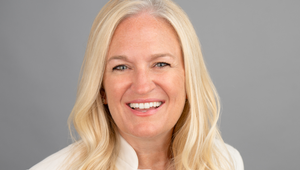
Closing the Say-Do Gap

“Our credibility comes as much from what we do as what we say” were the words of Rishi Sunak as he revealed the winter Budget this afternoon looking into a “new age of optimism” for the UK.
We help clients close the say-do gap across all their audience groups, so we took a closer look at how the budget intentions set out by the government are being supported by tangible actions
Here is a summary of the key announcements:
Say: “Investment in a high skilled economy”
Do:
• Increased funding per pupil as the UK deals with the consequence of the Covid-19 pandemic on education – an extra £4.7bn by 2024-25
• Multiply Scheme – to help with adult’s basic numeracy skills
• £560m investment in youth services
• “Scale-up visas” to make it easier for businesses to bring in highly skilled individuals
• £1.4bn set aside for a Global Britain Investment Fund to help lure in foreign investment
Say: “Unprecedented funding into R&D”
Do:
The Chancellor came under scrutiny in the media as he delayed £2bn in annual spending on (R&D). This controversially came as he committed to fund a new advanced research body that was the idea of ex-No 10 adviser Dominic Cummings.
The delay is also likely to push back the Conservatives’ manifesto commitment to spend 2.4% of GDP on R&D, as Sunak committed just 1.1% of GDP by 2024. The government’s previous commitment of £22bn investment will now be met in 2026-7, opening their ‘say-do’ gap.
Some favourable announcements, however, included:
• Expanded research & development (R&D) tax relief to help encourage investment in cloud computing and data costs
• £900m to fund the Advanced Research and Invention Agency (ARIA), a new body that will fund “high-risk, high-reward” technologies
• £400m boost in the budget of Innovate UK, which gives grants to promising technologies, by 2024-25
• Continued investment in Horizon Europe, the EU’s collaborative research programme
Say: “World class public services”
Do:
• A health care spending increase of £44bn to over £177bn by the end of this Parliament, with the recent national insurance hike boosting NHS and social scare funding
• Pay rises for around five million public sector workers, following the freeze in pay (excluding NHS and lower paid public servants) during the pandemic
Say: “Backing businesses and entrepreneurs”
Do:
As demand for goods post-Covid-19 has proven higher than supply chains anticipated, with roll on effects for various businesses and sectors, the Chancellor highlighted:
• Implementation of temporary visas for lorry drivers
• Suspension of the HGV levy until 2023
• Freezing of vehicle excise duty for HGVs until 2023
• A simpler tonnage tax regime for shipping – enabling it to be simpler and more competitive
As many retail, entertainment and hospitality venues were forced to close their doors during the pandemic, the Chancellor announced:
• Theatres, museums and galleries to receive tax relief until April 2024
• Firms in the retail, hospitality and leisure sectors to benefit from another year of 50% business rates relief
• From 2023, every business will be able to make property improvements – and, for 12 months, pay no extra business rates
For the Beers, Wine and Spirits (BWS) industry, there was a sigh of relief with a further freeze in alcohol duties until a proposed reform in 2023.
Say: “Help with rising cost of living”
Do:
• The Chancellor confirmed that the National Living Wage will rise to £9.50 an hour, up from its current level of £8.91 – an increase of £1,000 a year for a full-time worker
• The planned rise in fuel duty will be cancelled because of the current high fuel price which is already a squeeze on families and small businesses
Say: “Levelling up across different regions”
Do:
• Sunak revealed that Scottish government funding will increase by an average of £4.6bn per year while administrations in Wales and Northern Ireland will receive an extra £2.5bn and £1.6bn, respectively
• He also allocated grants from the £1.7bn “Levelling Up Fund” to a number of towns and cities
Say: “Laying the foundations for a strong recovery and greener economy”
Do:
With much pressure on the government’s green strategy ahead of COP26, Rishi’s speech and budget “red book” gave much less space to climate change and the UK’s net-zero target. The red book uses the word “climate” only nine times, against 31 last year, with seven appearances for “net-zero”, down from 17. The announcements included:
• £30bn towards Britain’s green industrial revolution – including £380m to the UK's offshore wind sector and £6.1bn to help deliver the Transport Decarbonisation Plan
• The release of at least £15bn of “green gilts” this financial year - these are government bonds dedicated to supporting net-zero
• A “green homes grant”, which allows people to apply for vouchers to cover the cost of home insulation or installing low-carbon heating
• The £5.2bn flood and coastal defence programme for England confirmed to begin in April
• A freeze in carbon price support at £18 per tonne of CO2 in 2022-23
• Investment relief for businesses adapting green technologies
• An investment of £57m to support jobs and green growth in Scotland
• A new ultra-long haul air passenger duty, covering flights of over 5,500 miles, shining a spotlight on the negative environmental impact of the aviation sector
• Funding into the Aerospace Technology Institute for research on lower-emissions planes until 2031 - welcome news for the aviation industry after the programme was previously frozen
Despite some notable progress, the renewed freeze in fuel duty was a major blow to the UK’s green credentials, as critics argued that the Chancellor had not gone far enough in the government’s net-zero commitments, ahead of the Cop-26 Summit in Glasgow next week.
For more reviews and insights click here.










